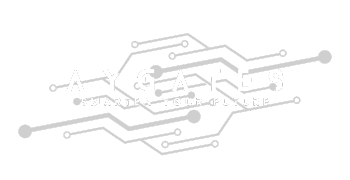Top 5 Benefits of Integrating CRM with Marketing Automation
In a world where customer expectations are constantly evolving, businesses must leverage the right tools to stay ahead. Integrating customer relationship management (CRM) systems with marketing automation tools is one of the most effective strategies for streamlining operations and driving growth. This blog explores the top five benefits of this integration and how it can transform your business.
1. Unified Customer Data for Better Insights
CRM systems store valuable customer information, including contact details, purchase history, and preferences. When integrated with marketing automation tools, this data becomes even more powerful.
For example, marketers can use CRM data to create personalized email campaigns targeting specific customer segments. By understanding customer behavior, businesses can deliver more relevant content, improving engagement and conversions.
2. Enhanced Lead Nurturing
Lead nurturing is critical for converting prospects into customers. A CRM system helps track leads throughout their journey, while marketing automation ensures timely communication.
For instance, an automated system can send follow-up emails to a lead who abandoned their shopping cart, offering a discount to encourage purchase. This seamless coordination between CRM and marketing tools ensures no lead falls through the cracks.
3. Increased Efficiency Through Task Automation
Manual tasks like sending emails, updating contact details, or scheduling follow-ups can be time-consuming. Integrating CRM with marketing automation eliminates these repetitive tasks, allowing teams to focus on high-value activities.
For example, when a new lead is added to the CRM, the marketing tool can automatically assign them to a drip campaign. This ensures consistent communication without requiring manual intervention.
4. Improved Customer Engagement
Personalization is key to successful customer engagement. With integrated tools, businesses can send targeted messages based on customer behavior and preferences.
For example, a customer who recently purchased a product can receive a follow-up email suggesting complementary items. These personalized interactions build trust and loyalty, encouraging repeat business.
5. Greater ROI from Marketing Efforts
The ultimate goal of any marketing strategy is to generate a high return on investment (ROI). By integrating CRM with marketing automation, businesses can track the effectiveness of their campaigns in real-time.
For instance, you can measure how many leads from a campaign converted into paying customers. This data-driven approach allows businesses to optimize their strategies, ensuring maximum ROI.
Why Your Business Needs This Integration
At Aygates Solutions, we understand the importance of seamless coordination between CRM and marketing tools. Our platform offers a comprehensive suite of solutions to help you manage customer relationships and automate marketing tasks effortlessly.
Integrating these tools isn’t just about convenience—it’s about creating a smarter, more efficient way to do business. With the right strategy, you can build stronger customer relationships, improve efficiency, and drive growth.






